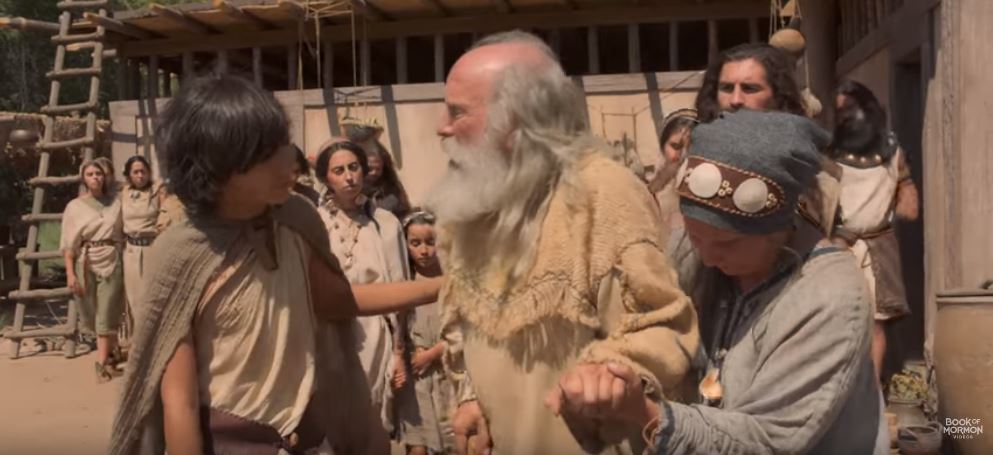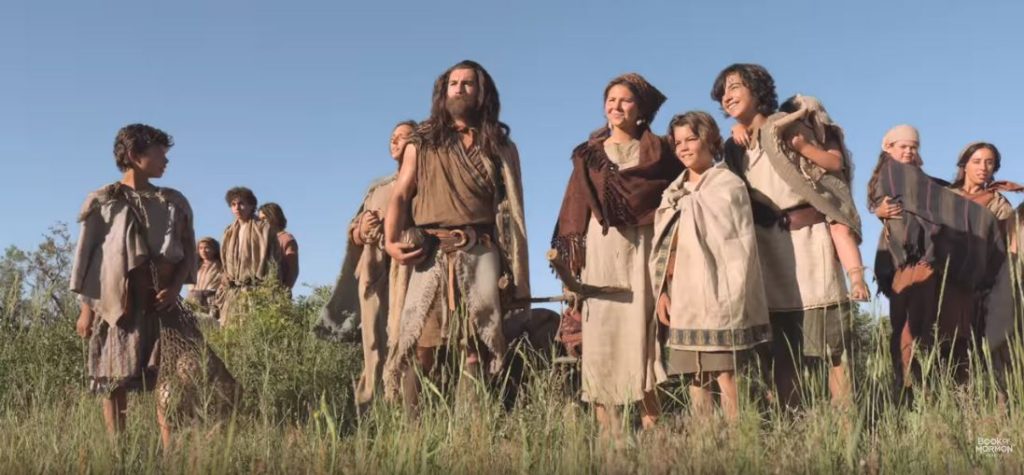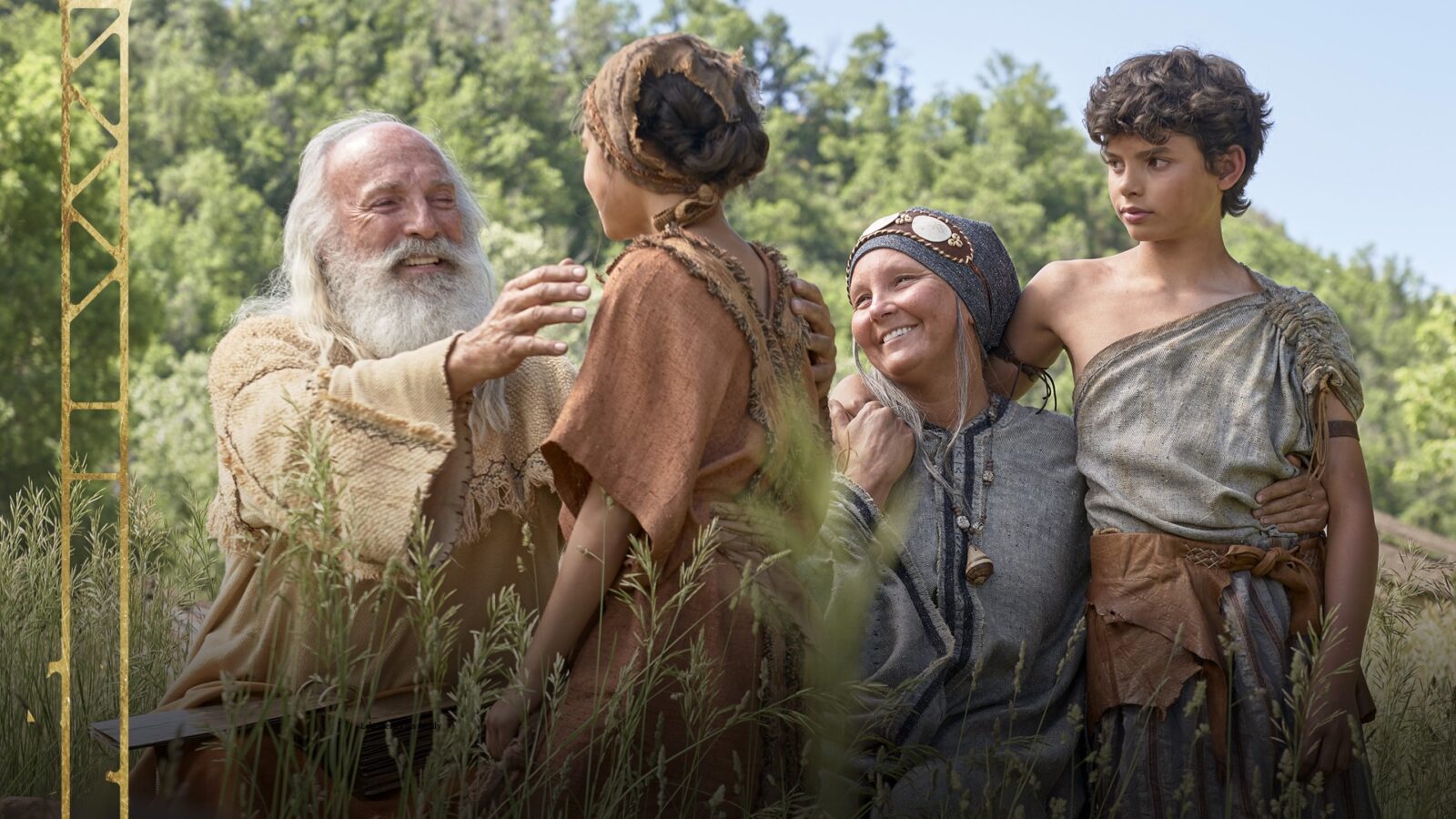Helps to enhance your study of the Come Follow Me material during the week of February 12-18.
In addition to reading 2 Nephi 3-5 this week, you will enjoy watching the following related videos:
You would also enjoy reading the following chapters from the Book of Mormon Institute Student Manual:
If you would like a Kahoot game related to this material which you could use for personal study or use with your family or your class, click here: https://create.kahoot.it/share/2-nephi-3-5/911875b2-1bfe-43e7-9d95-bd2259e7f75c. To use it with a group, after clicking on this link, you will need to log into Kahoot, creating a free account if you have not done so previously, then click on the blue “Start” button. Some of the Kahoot questions may presuppose that the player has read through the suggested answers to the following Points to Ponder as well as the recommended readings from the Institute Student Manual.
2 Nephi 3

1. 2 Nephi 3 refers to nine persons and three volumes of scripture. Can you find each? Put a reference from 2 Nephi 3 for each of the following. In the case of the four Josephs, indicate the rest of his name (or his father’s name).

2. (3:9, 15) One passage says Joseph Smith would be like Moses, while another says he would be like another Joseph. In what sense was he like each? What parallels can you point out?
3. (3:12) Can you “translate” this verse into plainer language so that everyone can understand exactly what is being said?
4. (3:14) How do you explain this promise in view of the fact that Joseph Smith was killed by his enemies?
5. What else of interest or value did you find in this chapter?
2 Nephi 4

1. 4:2 says there are not many prophecies greater than those of Joseph. But the Bible has almost none of his prophecies, in spite of the fact that we are told they were on the plates of brass. But fortunately, through Joseph Smith, we have additional writings of Joseph. Where can we find them? What are the most important points that he left for us?
2. Which passage in this chapter has, in your opinion, the highest probability of being quoted by some seminary teacher this year? Why?
3. (4:17-32) Why did Nephi consider himself a “wretched man”? What are the sins he finally admitted in this chapter to having committed? What can we learn from his attitude?
4. Which passage teaches that the family can do more than any other institution to prevent crime and violence in society?
5. Which verse indicates the attitude we should have toward watching television?
6. What else of interest or value did you find in this chapter?
2 Nephi 5

1. Which events in this chapter are of such historical importance that a reader of the Book of Mormon wouldn’t understand the following chapters if he skipped this one?
2. (5:20-25) Exactly what was the “curse” which the Lord brought upon the Lamanites, according to this chapter? (Be careful!) How would you explain it to a dark-skinned friend?
3. (5:18) It is clear that the Nephites wanted Nephi to be their King, but it is not so clear in this verse whether or not he accepted. What do you think? What information can be found elsewhere in the Book of Mormon that helps answer this question?
4. What else of interest or value did you find in this chapter?
POSSIBLE ANSWERS TO POINTS TO PONDER IN 2 NEPHI 3-5
2 Nephi 3
1. 2 Nephi 3 refers to nine persons and three volumes of scripture. Can you find each? Put a reference from 2 Nephi 3 for each of the following. In the case of the four Josephs, indicate the rest of his name (or his father’s name).
| Person or book | Reference |
| Lehi | 2 Nephi 3:1 |
| Joseph, son of Lehi | 2 Nephi 3:1-4, 25 |
| Joseph, son of Jacob | 2 Nephi 3:4-7 |
| Joseph Smith, Jr. | 2 Nephi 3:7-9, 15 |
| Joseph Smith, Sr. | 2 Nephi 3:15 |
| Moses | 2 Nephi 3:17 |
| Aaron (See Exodus 4:14-16) | 2 Nephi 3:17 |
| Jesus Christ | 2 Nephi 3:5 |
| Sidney Rigdon (See D&C 100:9) | 2 Nephi 3:18 |
| Tablets containing the 10 Commandments | 2 Nephi 3:17 |
| The Bible | 2 Nephi 3:12 |
| The Book of Mormon | 2 Nephi 3:12, 19-21 |
2. (3:9, 15) One passage says Joseph Smith would be like Moses, while another says he would be like another Joseph. In what sense was he like each? What parallels can you point out?
Both Moses and Joseph Smith spoke with God, both gave new scripture, both had loyal older brothers, both led people from one place to another, both performed miracles, etc., etc. Both Joseph of old and Joseph Smith had great spiritual experiences as young men, both suffered persecution, both became great leaders, etc.
3. (3:12) Can you “translate” this verse into plainer language so that everyone can understand exactly what is being said?
The descendants of Joseph (son of Jacob) would write the Book of Mormon, and the descendants of Judah would write the Bible, and together those two volumes of scripture would bring Joseph’s descendants to a knowledge of the gospel.
4. (3:14) How do you explain this promise in view of the fact that Joseph Smith was killed by his enemies?
Joseph Smith is currently doing just fine. In the eternal perspective, he will surely be seen as blessed, while those who opposed and killed him will indeed be confounded.
5. What else of interest or value did you find in this chapter?
Your choice. Some of mine might include:
- 3:5: Part of the Lord’s mission in the latter days is to bring Lehi’s descendants (both literal and figurative) out of darkness unto light, out of captivity unto freedom.
- 3:21: Through faith our words spoken in weakness can be made strong.
2 Nephi 4
1. 4:2 says there are not many prophecies greater than those of Joseph. But the Bible has almost none of his prophecies, in spite of the fact that we are told they were on the plates of brass. But fortunately, through Joseph Smith, we have additional writings of Joseph. Where can we find them? What are the most important points that he left for us?
In the Joseph Smith Translation of Genesis 50, Joseph says much of what Lehi quotes in 2 Nephi 3 concerning a future Moses and a great latter-day seer named Joseph.
2. Which passage in this chapter has, in your opinion, the highest probability of being quoted by some seminary teacher this year? Why?
Maybe v 15-16, which talk about delighting in the scriptures and pondering them.
3. (4:17-32) Why did Nephi consider himself a “wretched man”? What are the sins he finally admitted in this chapter to having committed? What can we learn from his attitude?
Nephi seems to have had a very well developed conscience. He finally admits to the sins of being angry because of his enemies (v. 27) and slackening his strength because of his afflictions (v. 29). We might conclude that the closer a man gets to God, the more repugnant he will find sin in any form.
4. Which passage teaches that the family can do more than any other institution to prevent crime and violence in society?
V. 5.
5. Which verse indicates the attitude we should have toward watching television?
V. 31. We should “shake at the appearance of sin,” not enjoy watching programs that depict it.
6. What else of interest or value did you find in this chapter?
Your choice! I might mention:
- 4:4: One of the main themes of the Book of Mormon is mentioned once again.
- 4:21-25: Even while lamenting his weaknesses, Nephi testifies to having had some remarkable spiritual experiences, not necessarily detailed elsewhere.
- 4:26: There is some reason to think that the original manuscript may have said “visited me,” not “visited men,” which would make more contextual sense.
- 4:34: A good reminder of the foolishness of trusting in man rather than in God.
- 4:35: A reminder of God’s generosity.
2 Nephi 5
1. Which events in this chapter are of such historical importance that a reader of the Book of Mormon wouldn’t understand the following chapters if he skipped this one?
Lehi’s descendants are now separated into two groups, and those who followed Nephi have moved from the land of their first inheritance on the coast up to the highlands and have appointed Nephi as a king. Some believe the site of the city of Nephi to be within the boundaries of present-day Guatemala City.
2. (5:20-25) Exactly what was the “curse” which the Lord brought upon the Lamanites, according to this chapter? (Be careful!) How would you explain it to a dark-skinned friend?
2 Ne. 5:24 tells us that because of their cursing the Lamanites became an idle people, full of mischief and subtlety, etc. There is nothing about a dark skin which would cause this, but certainly being cut off from the presence of the Lord would promote such behavior. The skin color was just a designation of which group was cursed, not the curse itself. Its purpose was to make the righteous less inclined to intermarry with those who were different from them.
3. (5:18) It is clear that the Nephites wanted Nephi to be their king, but it is not so clear in this verse whether or not he accepted. What do you think? What information can be found elsewhere in the Book of Mormon that helps answer this question?
The superscription to 1 Nephi, referring to his “reign,” and the reference in Jacob 1:9-15 to Nephi’s successor as their “second king” seem to settle the issue. Nephi understood, as did Benjamin (Mos. 29:13), that it wasn’t the institution of monarchy itself that was so bad but the danger of its perversion.
4. What else of interest or value did you find in this chapter?
The following are possibilities:
- 5:6: If Nephi’s sisters really had married sons of Ishmael, as Elder Erastus Snow asserted, it appears that some families may have been broken up by this exodus, as the sons of Ishmael quite clearly did not follow Nephi’s group.
- 5:15: Nephi’s primary role as the first king seems to have been that of a teacher, not a dictator. And surely it was his example and his encouragement which caused the people to be “industrious.” Force can compel compliance, but not attitude!
- 5:32: We are reminded again that the Book of Mormon will be enjoyable to those who really like the things of God.
- 5:34: This is one of many passages which suggests that Lehi’s family was not alone in the New World. Evidently the Lamanites intermarried with indigenous tribes. Otherwise, the contentions mentioned in 5:34 might have been called “feuds” or “fights,” but hardly “wars.”
